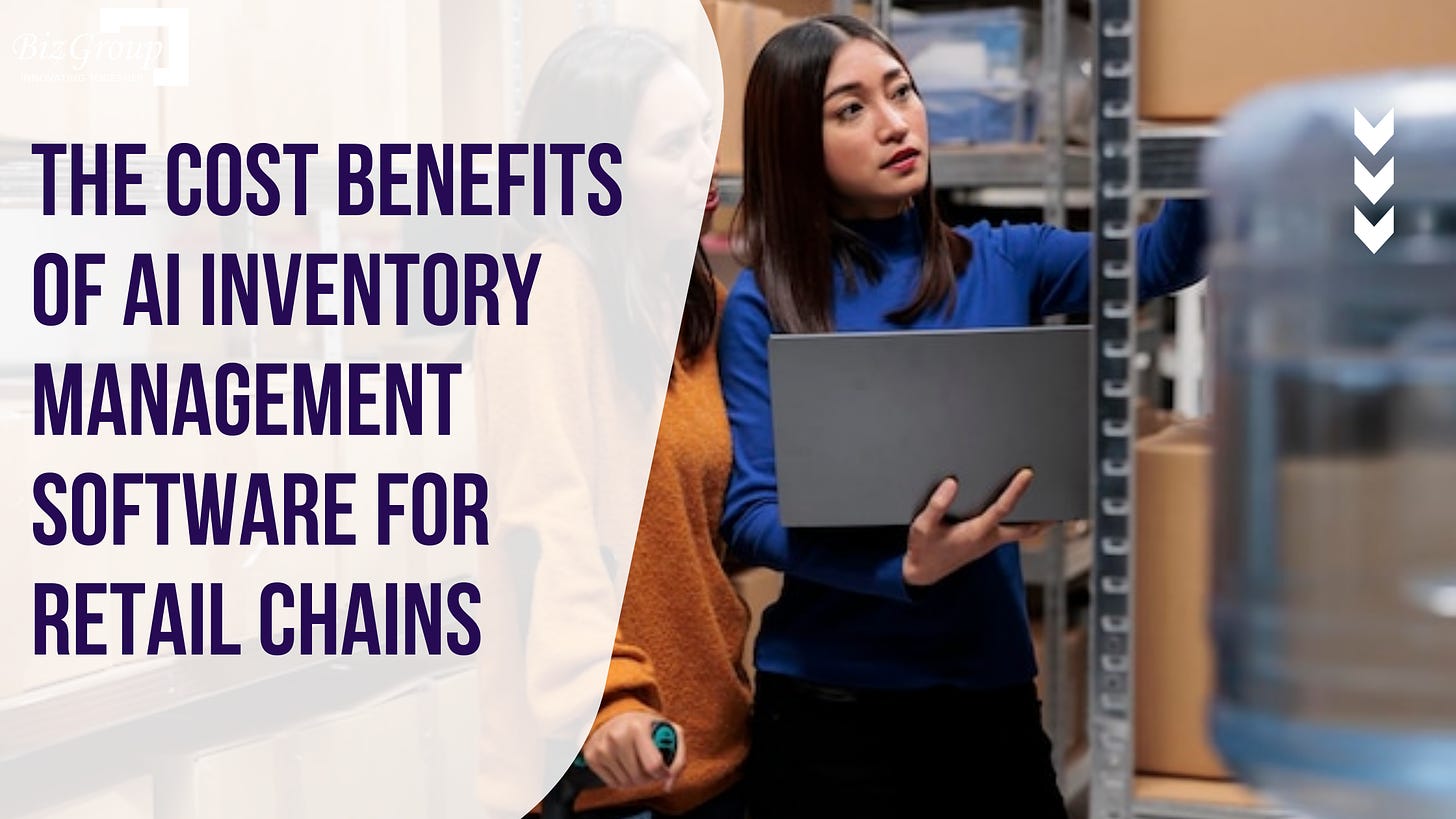In today's fast-paced retail world, managing inventory efficiently is crucial for staying ahead of the competition. Retail chains, whether small or large, need to optimize their operations to reduce waste, increase profits, and meet customer demand effectively. One of the most transformative tools for achieving this is AI inventory management software. By integrating AI into inventory management, retail businesses can not only streamline their processes but also unlock significant cost savings. Let’s explore the cost benefits of AI inventory management software and how it’s reshaping the retail industry.
What is AI Inventory Management Software?
AI inventory management software uses artificial intelligence and machine learning algorithms to manage, track, and forecast inventory needs in real-time. Unlike traditional methods, this software analyzes historical data, market trends, and customer behavior to predict future demands accurately. By doing so, it helps retailers reduce overstock, prevent stockouts, and optimize the supply chain.
Key Cost Benefits of AI Inventory Management Software
1. Improved Demand Forecasting
One of the biggest advantages of AI inventory management software is its ability to accurately forecast demand. Traditional inventory management systems rely heavily on past data and can be prone to errors, especially during unexpected market changes. AI, on the other hand, adapts to patterns, external factors, and even emerging trends. This precision in demand forecasting helps retailers:
Avoid overstocking, which reduces warehousing costs and the risk of unsold items.
Prevent stockouts, ensuring that popular products are always available, leading to increased sales.
These improvements alone can lead to significant cost savings, improving profit margins and customer satisfaction simultaneously.
2. Reduced Operational Costs
Managing inventory manually or using outdated systems can lead to inefficiencies and high operational costs. AI inventory management software automates repetitive tasks such as restocking, tracking inventory levels, and generating reports. This automation not only reduces human error but also cuts down on the need for large teams of inventory managers. In turn, this leads to:
Lower labor costs.
Less waste due to human errors.
More efficient warehouse management, freeing up valuable resources.
Additionally, AI systems can work 24/7 without fatigue, providing continuous optimization and monitoring.
3. Enhanced Supply Chain Optimization
Another cost benefit of AI inventory management software is its impact on supply chain management. AI-driven systems can identify bottlenecks and inefficiencies in the supply chain, ensuring faster and more accurate delivery times. This optimization leads to:
Lower shipping and logistics costs due to efficient route planning.
Reduced lead times, which means less money tied up in inventory.
Better supplier relationships through more accurate and timely orders.
Retailers who adopt AI for their inventory management often find that they can improve supplier negotiations by providing more precise order forecasts, further reducing costs.
Scalability and Flexibility for Retail Chains
As retail chains grow, managing inventory across multiple locations becomes more complex. Traditional systems can become overwhelmed, but AI inventory management software scales easily. Whether a retailer has 10 stores or 1,000, AI can centralize inventory management, providing real-time insights across the entire chain.
This level of flexibility not only reduces costs but also allows for:
Better data integration across all stores.
Consistent pricing and inventory availability.
Easier adoption of new technology, such as integrating custom AI solutions through AI Development services or AI Consulting Services for tailored retail needs.
AI Inventory Management and Customer Experience
Retailers aren’t just saving money—they’re also improving customer satisfaction. With AI inventory management software, retailers can ensure they always have the right products in stock, avoiding the frustration of stockouts. Furthermore, integrating custom chatbot development with inventory systems can enhance the customer experience, providing real-time product availability information and ensuring seamless communication between customers and the store.
Generating Future Growth with AI Solutions
Adopting AI inventory management software is only the first step in a broader digital transformation. Retailers who fully embrace AI solutions, such as Generative AI development company or AI Integration Services, can unlock even more potential for growth. AI can be integrated into every aspect of retail operations, from customer service to personalized marketing and beyond, further reducing costs and increasing efficiency.
Exploring the Role of Computer Vision in Retail
Computer Vision Development Services also play a crucial role in retail. By integrating computer vision with AI inventory management software, retailers can improve shelf monitoring, automatically detect low stock, and track in-store customer behavior. These advanced capabilities help retailers reduce shrinkage, prevent theft, and optimize product placement—all of which contribute to reduced costs.
Conclusion
The cost benefits of adopting AI inventory management software for retail chains are clear. By improving demand forecasting, reducing operational costs, and optimizing supply chains, retailers can see immediate financial gains. Moreover, the scalability and flexibility of AI systems ensure that these cost savings grow as the business expands.
As retail continues to evolve, integrating AI-driven solutions is essential for long-term success. Whether it’s through Enterprise AI Solutions or other advanced AI tools, the future of retail is AI-driven, and those who embrace this technology will be better positioned to lead the market. So, if you're ready to explore the future of retail management, partnering with website development solutions to customize your digital presence or tapping into AI Development services can be your next step towards success.
In the age of digital transformation, AI isn’t just a tool—it’s a game changer.




